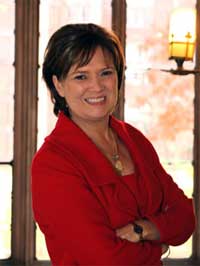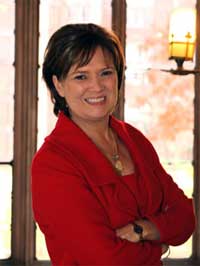 KINGSTON, R.I. —March 7, 2012 –Mount Holyoke College President Lynn Pasquerella, a teacher, scholar, and prominent ethicist with a career marked by local and global engagement, will speak on two topics March 29 at the University of Rhode Island. Both talks by the former URI administrator are free and open to the public.
KINGSTON, R.I. —March 7, 2012 –Mount Holyoke College President Lynn Pasquerella, a teacher, scholar, and prominent ethicist with a career marked by local and global engagement, will speak on two topics March 29 at the University of Rhode Island. Both talks by the former URI administrator are free and open to the public.
Here are the details:
4 p.m. Swan Hall, Doody Auditorium, 60 Upper College Road, Kingston: Pasquerella will deliver the annual Carlson Lecture sponsored by Gender and Women’s Studies, The Center for the Humanities, and the Honors Program: “Women’s Leadership, Generational Forgetting, and the Problem of Speaking for Others.”
Women’s studies and women’s education are essential in strengthening the institutional presence of women leaders who will work against the generational forgetting of women’s accomplishments, thus accelerating the pace of change for today’s women. In seeking to give voice to the accomplishments and experiences of women in an age of increased global connection, true change for women requires scholars who are sufficiently self-reflective and self-critical to challenge western domination of the production, organization, and dissemination of research, relying instead on locally informed research and scholarship that often emphasizes the community over the individual.
7:30 p.m. Lippitt Hall 402, 5 Lippitt Road, Kingston: Second Annual URI Spring Humanities Festival.
Pasquerella will deliver the keynote speech, “Humanities and Social Justice.” Critics decry what appears to be a profound gap between the academic experience and practical reality. Drawing distinctions among humanities questions, humanities endeavors, humanities scholarship, and humanities practice, Pasquerella argues that the future of the humanities—and, thus, the future of the academy—lies in both the cultivation of humanities practice and the promotion of institutional structures that are themselves humanistic. She challenges her audience to consider the consequences of a failure to bridge the current divide between humanistic scholarship and the public’s interest in the humanities within the broader context of social justice.
Pasquerella has written extensively in the areas of medical ethics, theoretical and applied ethics, metaphysics, public policy, and the philosophy of law. A celebrated teacher who ascended through the professorial ranks in URI’s Philosophy Department, she stepped into academic administration in 2004. Through successive leadership positions, she eventually served as vice provost for research and dean of the graduate school and vice provost for academic affairs. She focused particularly on high academic standards, interdisciplinary, as well as, strongly discipline-based teaching and research, connections with and service to the community, improved access to higher education, and the enduring power of liberal education.
While in Rhode Island, Pasquerella served as a fellow in the John Hazen White Sr. Center for Ethics and Public Service and a professor of medical ethics in Brown University Medical School’s Affinity Group Program.
In 1998, Pasquerella was honored by Change Magazine and the American Association of Higher Education as one of the nation’s “Young Leaders of the Academy.” She served on Rhode Island Department of Health’s Institutional Review Board, the advisory board for the Women’s Adult Correctional Facility in Rhode Island, and Day Kimball Hospital’s ethics committee. She is a senator and member of the executive committee of Phi Beta Kappa.
Pasquerella has received funding through the U.S. Department of Energy to work on ethical issues related to the Human Genome Project. She has also received research grants from the National Endowment for the Humanities, the National Science Foundation, the Hewlett Foundation, the American Bar Association, the Council of Graduate Schools, the Office of Research Integrity, the Mellon Foundation and Newman’s Own Foundation.
In 2008, she joined the University of Hartford as provost and chief academic officer. Two years later, she was asked to serve her alma mater, Mount Holyoke College, as its 18th president.

